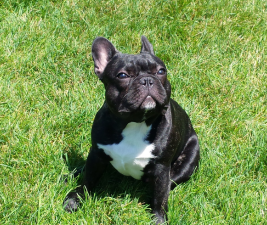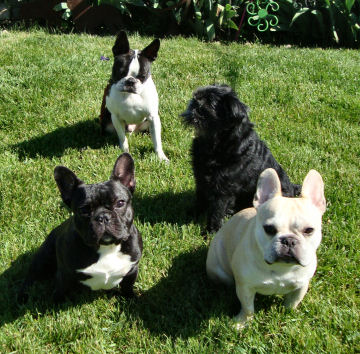Dog personalities are described as “hard” or “soft.” It’s often described as something you know when you see it, but hard to describe. Because we’re discussing the differences, the pros, cons, and challenges of each, we did a little search on how others define the traits. What is a hard dog? What about a soft dog?
We were pretty surprised by what we found. As if we were still in the dark ages of dog training, the top results talked about how “hard” dogs are notable for being able to withstand harsh punishment. That’s not it. Not at all. No dog should ever have to endure physical punishment. Both science and common decency have proven positive reinforcement is a more effective (and humane) way to train dogs.
We wanted to get that out of the way. That’s not what we’re talking about when we define dog personalities as “hard” or “soft.” At the most basic level, the major difference between the two personalities would be confidence. “Hard” dogs tend to be more confident than “soft” dogs. Most dogs probably fall somewhere in the middle, showing characteristics of both.
Interestingly, you’ll find both types of dogs described as “stubborn.” But stubborn isn’t really a dog thing, it’s a people personality trait. If you ask or tell your dog to do something and they don’t, it’s either because they don’t understand what you want, or it’s not sufficiently rewarding to do it.
Hard dog defined
By most measures, Fran’s Boston Terrier Simon could be considered a “hard” dog. He has a temper and he can lash out if he’s thwarted. He also wants to be part of everything that goes on. The other part of that personality is that he’s quick on the uptake, learns new things quickly, and loves playing training games. Most of the time, as in this picture, Simon shows us “soft” eyes and is a pleasure to have around.
He’s also moody. When he’s in one of his moods, Simon’s eyes get hard and he’s looking for a reason to go after one of the other dogs. If you’ve never had a dog with “hard eyes,” you may not know what we’re talking about. When we see it, we’ve learned to lower the stress level and change his focus.
One of the terrific aspects of having a “hard” dog is they don’t shut down when they don’t understand. They’ll keep trying until they get the answer. This is probably the most glaring difference between “hard” and “soft” dogs.
Soft dog features
Soft dogs tend to be more timid and less confident. These are the dogs that will hide behind their person in unfamiliar situations. They’re also the ones who need encouragement to try new things. In their own way, soft dogs can be exhausting. It’s tough always being a cheerleader.
One of the best parts of the soft dog personality is they tend to be sweet and cuddly. Interestingly, there’s a Chocolate Lab in Hope’s beginner class who pretends to be a hard dog, barking and jumping for attention. But he’s actually a softie and quite uncertain. This guy isn’t sure what to do, so acts in a way that always gets his owner’s attention. He’s looking for someone to tell him what to do, and he’s getting it. Building up his confidence, without catering to his insecurities, is the goal.
Training solves most problems
Both “hard” and “soft” dogs’ personalities mellow somewhere in the middle when they know what’s expected of them and how to act. Regardless of where your dog comes in on the scale, just recognizing why they’re acting the way they are can make life easier. Most dogs are somewhere in the middle, sometimes showing all the confidence in the world. And other times they’re unsure and need reassurance. Just as people, dogs’ personalities are complex.
Enjoyed this post? Click here to sign up for the weekly newsletter and never miss another!












